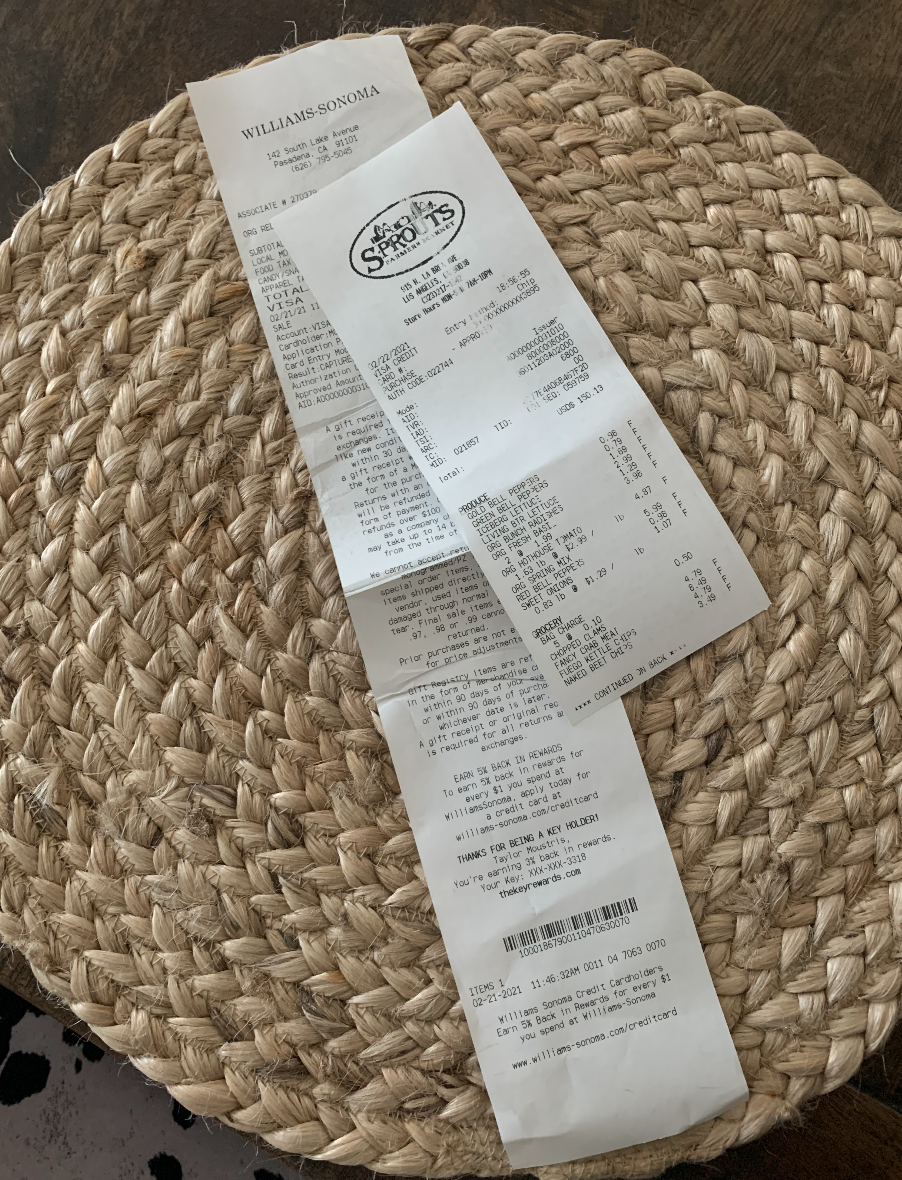What is BPA?
BPA stands for Bisphenol A. It is an industrial chemical that is found in most plastics and epoxy resins. It is used in those products because it is useful in hardening plastics. BPA is specifically found in polycarbonate plastics, which are often used to store food and drinks. Epoxy resins are used to line metal products, such as canned foods and drink cans. Water bottles also tend to be big offenders of BPA. Most importantly, thermal print receipts from basically all of the stores and restaurants we all go to have the most BPA ever. Aside from receipts, we receive most of our BPA exposure through eating and drinking.
The FDA has repeatedly said that BPA is safe and okay, but like I have said before, the FDA allows almost everything, so that cannot be our guidepost. Also, in 2010, the FDA did ban BPA in baby products such as baby bottles, sippy cups, and baby formula. So, the FDA must have some concerns to ban it in some products. A handful of states have also started regulating and limiting the use of BPA in their state, which is good. So, I definitely think it is valid to be concerned about BPA.
So, what is the issue with BPA?
BPA is thought to act like the hormone estrogen in the body when it is ingested. Once ingested, it can then disrupt our normal hormone levels, which can negatively impact the development of fetuses, babies, and children. BPA has an estrogen like shape and due to this shape, it can unfortunately bind to estrogen receptors in our bodies and influence hormonal processes in our bodies, such as growth, cell repair, fetal development, energy levels, and reproduction. BPA can also interact with other hormone receptors in our bodies, including those associated with our thyroid. This may sound crazy, but I really try hard to not touch receipts if I don’t have to, because receipts contain such a high level of BPA and just touching them can put your hormones out of whack. This is because our bodies are so sensitive to changes in hormone levels. So, I usually make my fiancé touch them, or I ask for the teller to put the receipt directly into the bag. Trader Joe’s doesn’t have BPA in their receipts, and I think other places should follow suit. I let Whole Foods know this, as well, but they have not listened to me yet.
Not only does BPA affect your estrogen levels, but BPA can actually affect your fertility. Some studies have shown that women with frequent miscarriages have more BPA in their blood than women with successful pregnancies. Also, studies of women undergoing fertility treatments in order to family plan showed a correlation between higher levels of BPA and lower levels of egg production. And, couples with high BPA when undergoing in vitro fertilization produced lower quality embryos, and men with high levels of BPA had lower sperm counts.
Lastly, BPA has been linked to heart disease and Type 2 diabetes. Those with a lot of BPA exposure are more likely to have high blood pressure and acquire Type 2 Diabetes. Some other studies have shown that BPA can impact your brain development and function, and other studies have shown that BPA can cause a heightened risk of cancer or other diseases related to immune function, which is all really scary.

What can you do to avoid BPA?
I don’t think it is realistically possible to completely avoid BPA unfortunately, but I think trying to limit your exposure to it so that you only retain really low levels is a good idea. Like with anything toxic or problematic, the less exposure the better. Below is a short list of things I try to do to avoid BPA:
- I try to use BPA free products if at all possible. Many water bottles and cans now are actually BPA free. They will say so on the bottle or can, so just read the labels to see what you are working with. Alternatively, you can use glass water bottles.
- When storing food, I use non-plastic containers, such as glass. I have all glass storage containers at home now, and it really just is the best. You especially do not want to warm your food in plastic containers. When plastic with BPA in it is heated, the BPA will actually leach into your food. It is probably best to also handwash any plastic storage containers that you have to avoid any BPA leaching through the wash. Also, some BPA plastic free containers just use a sister version of BPA instead, and it is not clear if that is any safer than BPA at this point in times, so it’s best to just use glass.
- I try to avoid plastics with a 3 or a 7 recycle code on the bottom. These plastics might contain BPA or its sister versions. Other types of numbered recycled plastic are not as likely to have BPA in them.
- As noted above, I try to not touch or hold thermal receipts. These are big offenders of BPA, so if you can avoid touching them do so.
If anyone else has other tips to avoid BPA, please share. Let’s all help each other be more well preserved.
Always,
Taylor




